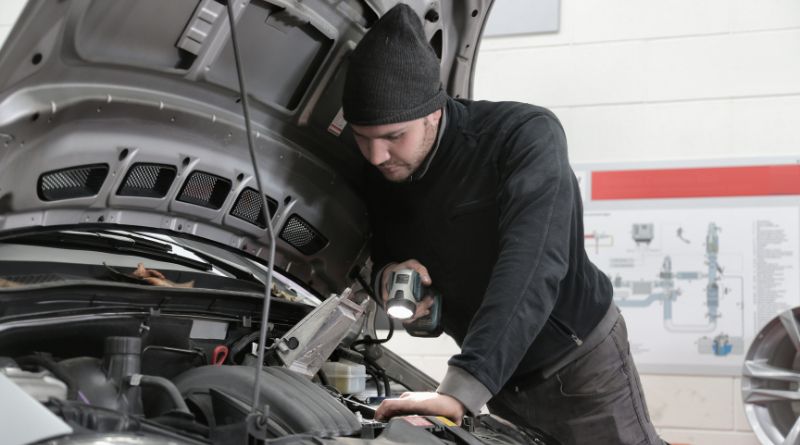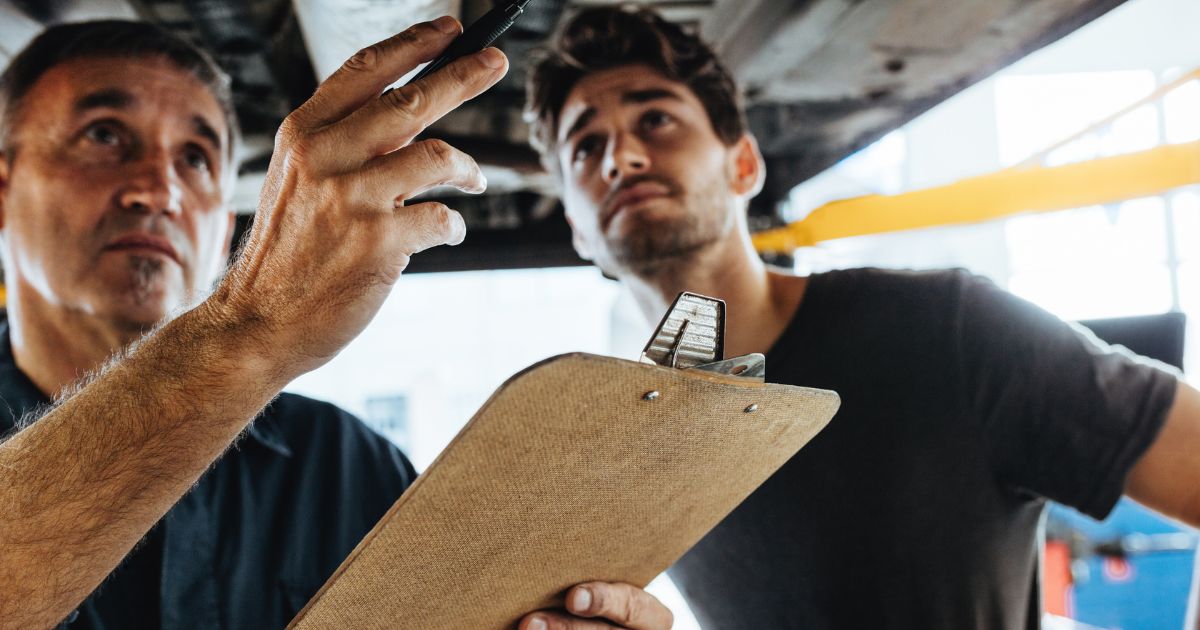There’s nothing more frustrating than hopping into your car, ready to go, only to turn the key or press the start button — and nothing happens. You try again, and still, the engine doesn’t turn over. If your car won’t start, it could be a sign of a number of potential issues. But don’t worry, we’re here to help!
In this post, we’ll break down the top 7 reasons why your car might not start and provide tips on how to troubleshoot each problem. Whether you’re a first-time car owner or a seasoned driver, this guide will help you identify and fix the issue so you can get back on the road.
1. Dead Car Battery
The car battery is one of the most common culprits when your car won’t start. Batteries lose charge over time, especially if your car hasn’t been driven in a while. If your dashboard lights are dim or flickering, or if you hear a clicking noise when you try to start your car, it could mean the battery is dead.
How to Fix It:
Jump-start your car: If you have jumper cables and a second car, you can try jump-starting your car to get it going. If your car starts after a jump, it’s likely that your battery was the issue.
Get a new battery: If the car won’t start after a jump, or if your battery is more than a few years old, it might be time to look into car battery replacement. Replacing the battery is a quick fix that can save you from future breakdowns.
Preventive Tip:
Check your battery regularly for signs of corrosion, and consider car battery replacement every 3 to 5 years, depending on usage and climate conditions.
2. Faulty Starter Motor
Your starter motor is what gets your engine moving when you turn the key or press the start button. If your car’s starter motor is faulty or damaged, it won’t be able to engage the engine properly, leaving you stuck without a running car.
How to Fix It:
- Listen for a clicking sound: If you hear a series of clicks when you try to start your car, the starter motor might be failing.
- Replace the starter motor: Unfortunately, starter motor issues usually require a professional to fix. If you suspect this is the issue, it’s best to take your car to a mechanic for a full diagnosis.
Preventive Tip:
- If your starter motor is older, it’s a good idea to have it checked during regular maintenance to catch any potential problems early.
3. Ignition Switch Issues
The ignition switch is responsible for sending power to your car’s electrical system when you turn the key or push the start button. If the ignition switch is malfunctioning, the electrical system may not receive the power it needs to start the engine.
How to Fix It:
- Worn-out ignition switch: If the key doesn’t turn easily or the car starts intermittently, the ignition switch could be worn out.
- Replace the ignition switch: A professional mechanic will need to replace the ignition switch if it’s broken or malfunctioning.
Preventive Tip:
- Avoid turning your key in the ignition unnecessarily or leaving it in the “on” position for too long, as this can wear out the ignition switch faster.
4. Empty Gas Tank
This might sound like an obvious reason, but it’s a common issue. If your gas tank is empty, your car won’t start. Sometimes, drivers forget to check the gas gauge, and they try to start the car only to find it won’t turn over.
How to Fix It:
- Check the fuel level: Look at the gas gauge to see if you’re low on fuel. If it’s empty, fill the tank and try starting the car again.
- Fuel indicator light: Many cars have a fuel warning light that comes on when the tank is near empty. Make sure to pay attention to it in the future.
Preventive Tip:
- Always keep an eye on your fuel gauge and try to fill up when the tank is about a quarter full to avoid running out of gas.
5. Bad Fuel Pump
The fuel pump is responsible for moving fuel from the gas tank to the engine. If the fuel pump stops working, your engine won’t receive the fuel it needs to start or run properly. A bad fuel pump can be caused by wear and tear or contamination in the fuel. In some cases, buildup in the fuel system from dirty injectors can also put extra strain on the pump, which is why fuel injector cleaning is an important part of overall fuel system maintenance.
How to Fix It:
- Listen for the fuel pump: When you turn the key to the “on” position (without starting the engine), you should hear a soft hum from the fuel pump. If you don’t hear it, the pump could be faulty.
- Replace the fuel pump: A bad fuel pump often requires a professional mechanic to replace it, as it’s located within the gas tank.
Preventive Tip:
Regularly replace your fuel filter (at least every 30,000 miles or as recommended by your car’s manufacturer) and schedule periodic fuel injector cleaning to keep your fuel system clean and avoid damaging the fuel pump.
6. Clogged Fuel Filter
Your fuel filter is designed to keep dirt and debris from entering your engine. Over time, the filter can become clogged, preventing fuel from flowing properly to the engine. This can cause your car to hesitate when starting or cause it to stall while driving.
How to Fix It:
- Signs of a clogged filter: If your car is slow to start, runs rough, or stalls frequently, it might be due to a clogged fuel filter.
- Replace the fuel filter: Replacing the fuel filter is a relatively easy and inexpensive fix that you can do yourself or have a mechanic do during your regular service.
Preventive Tip:
- Make sure to replace your fuel filter at the intervals recommended in your car’s owner’s manual to keep your engine running smoothly.
7. Faulty Alternator
The alternator is responsible for keeping your car’s battery charged while the engine is running. If the alternator stops working, your battery won’t charge, and your car could die while driving or fail to start at all.
How to Fix It:
- Signs of a failing alternator: If you notice your car’s lights dimming, your battery warning light coming on, or your car stalling while driving, the alternator might be to blame.
- Replace the alternator: A faulty alternator needs to be replaced by a professional mechanic. It’s best to replace it as soon as possible to avoid being stranded with a dead battery.
Preventive Tip:
- If your battery frequently dies, it could be an indication of an alternator issue. Have it tested at a mechanic to prevent further problems.
Conclusion
It can be upsetting when your car won’t start, but you can solve the issue more quickly if you know what the potential causes are. Your automobile may not start for a number of reasons, such as a dead battery or a malfunctioning alternator. You may avoid expensive repairs and save time by looking for these frequent problems.
Taking your car to a skilled technician is usually a good idea if you can’t figure out the issue on your own. An expert car mechanic can make an accurate diagnosis and get you back on the road more quickly. Frequent maintenance can help avoid these problems in the first place. This includes inspecting your alternator, fuel filter, and battery.
Also Read: Rhude Shorts The Ultimate Streetwear Statement for Summer


